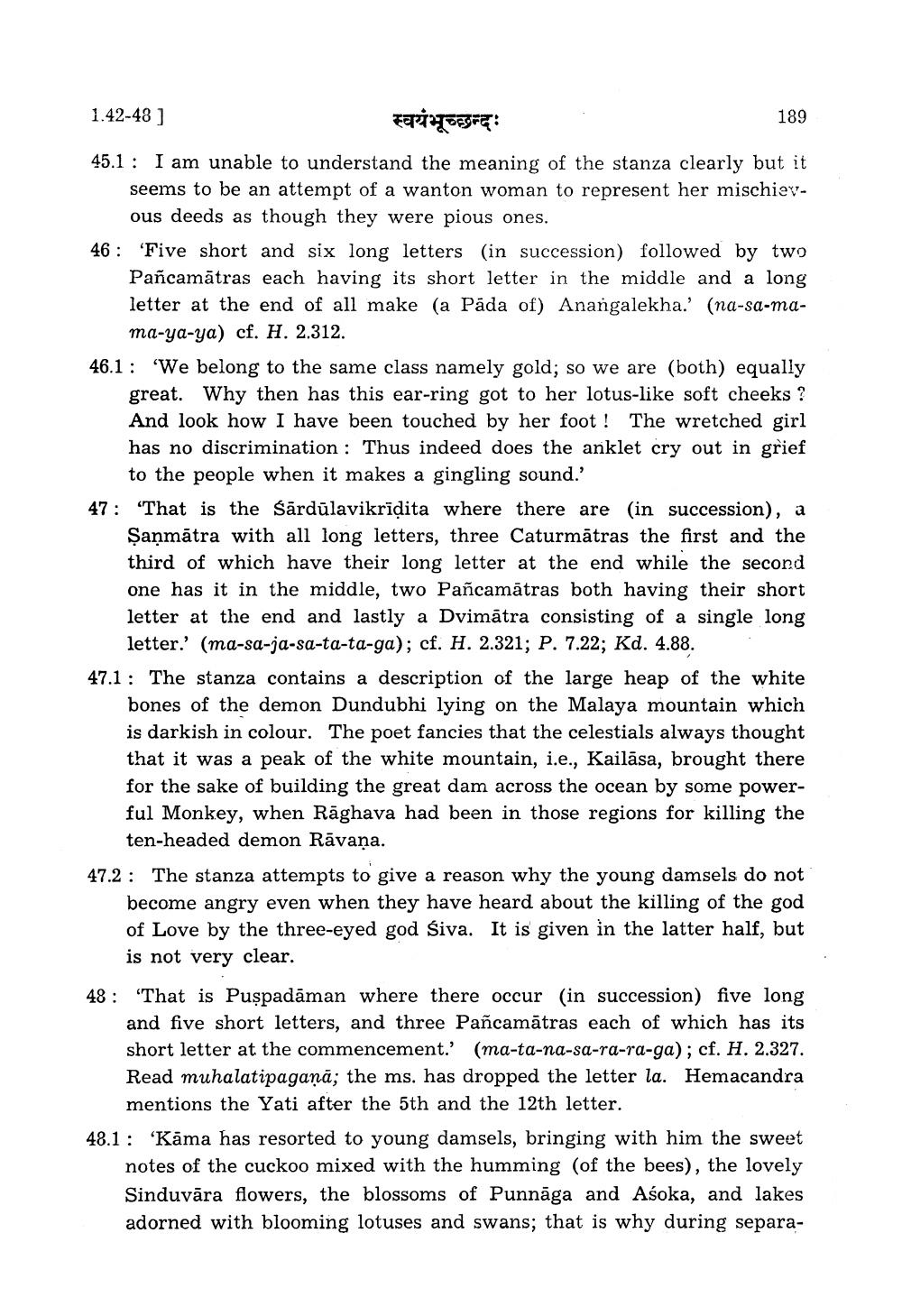________________
1.42-48 ] स्वयंभूच्छन्दः
189 45.1 : I am unable to understand the meaning of the stanza clearly but it
seems to be an attempt of a wanton woman to represent her mischiev
ous deeds as though they were pious ones. 46 : 'Five short and six long letters in succession) followed by two
Pañcamātras each having its short letter in the middle and a long letter at the end of all make (a Päda of) Anangalekha.' (na-sa-ma
ma-ya-ya) cf. H. 2.312. 46.1: 'We belong to the same class namely gold; so we are (both) equally
great. Why then has this ear-ring got to her lotus-like soft cheeks? And look how I have been touched by her foot! The wretched girl has no discrimination : Thus indeed does the anklet cry out in grief
to the people when it makes a gingling sound.' 47: "That is the śārdūlavikrīdita where there are (in succession), a
Şanmātra with all long letters, three Caturmātras the first and the third of which have their long letter at the end while the second one has it in the middle, two Pañcamātras both having their short letter at the end and lastly a Dvimātra consisting of a single long
letter.' (ma-sa-ja-sa-ta-ta-ga); cf. H. 2.321; P. 7.22; Kd. 4.88. 47.1: The stanza contains a description of the large heap of the white
bones of the demon Dundubhi lying on the Malaya mountain which is darkish in colour. The poet fancies that the celestials always thought that it was a peak of the white mountain, i.e., Kailāsa, brought there for the sake of building the great dam across the ocean by some powerful Monkey, when Rāghava had been in those regions for killing the
ten-headed demon Rāvana. 47.2: The stanza attempts to give a reason why the young damsels do not
become angry even when they have heard about the killing of the god of Love by the three-eyed god siva. It is given in the latter half, but is not very clear.
48 : "That is Puspadāman where there occur in succession) five long
and five short letters, and three Pañcamātras each of which has its short letter at the commencement. (ma-ta-na-sa-ra-ra-ga); cf. H. 2.327. Read muhalatipagaņā; the ms. has dropped the letter la. Hemacandra
mentions the Yati after the 5th and the 12th letter. 48.1: 'Kama has resorted to young damsels, bringing with him the sweet
notes of the cuckoo mixed with the humming (of the bees), the lovely Sinduvāra flowers, the blossoms of Punnāga and Asoka, and lakes adorned with blooming lotuses and swans; that is why during separa




